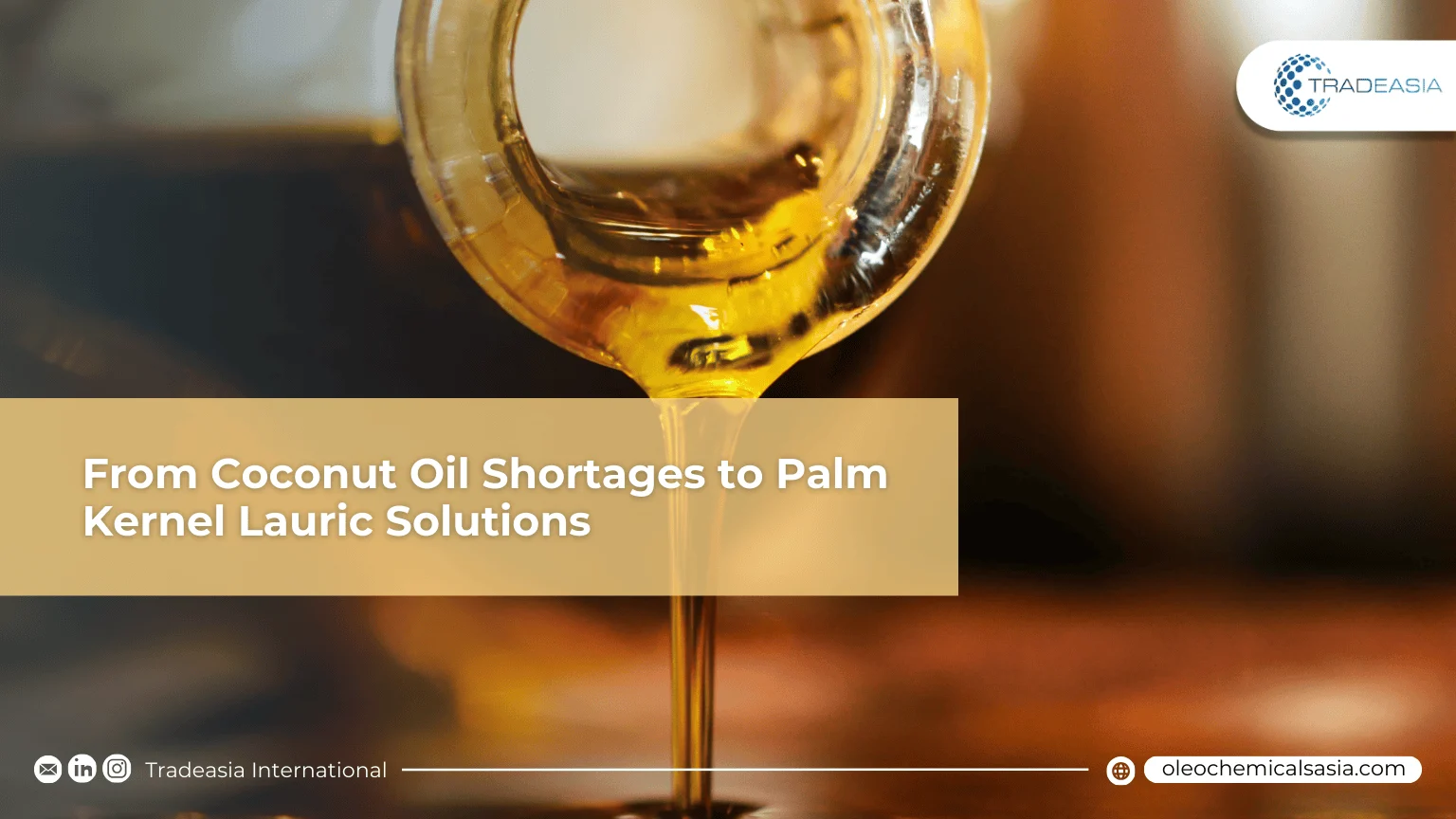Rising Pressures from Coconut Oil’s Volatility
The global oleochemical and palm trading sectors are navigating a period of profound change as coconut oil faces unprecedented supply challenges. In 2025, coconut oil prices surged to between $2,483 and $3,628 per metric ton, a dramatic 74% year-on-year increase. This escalation has been fueled by a combination of extreme weather, aging coconut plantations, and logistical bottlenecks in key producing regions such as the Philippines and Indonesia. For industries reliant on lauric acid, these developments have translated into soaring raw material costs and significant supply uncertainties.
As volatility intensifies, companies are compelled to explore more resilient alternatives. This is where global traders such as Tradeasia International, with its strong foundation in palm and oleochemicals, have become strategic partners for businesses seeking stability. “In times of disruption, supply chain partnerships are no longer optional—they are decisive,” highlights a sentiment increasingly shared across the industry. By leveraging palm kernel oil and other oleochemical solutions, companies can mitigate risks and secure consistent access to critical raw materials.
Palm Kernel Oil: A Cost-Effective and Sustainable Alternative
Palm kernel oil (PKO) has quickly emerged as the frontrunner in addressing these shortages. Despite recording a 30% price increase in 2025, PKO remains far more affordable than coconut oil, averaging $875–$907 per metric ton. This growing gap, now exceeding $1,000 per ton, is driving manufacturers in oleochemicals, food processing, and personal care to reconfigure sourcing strategies.
Beyond cost advantages, PKO delivers remarkable efficiency. Oil palm plantations yield about 4 tons of oil per hectare annually, compared to just 0.7 tons from coconut, making PKO 5.7 times more productive per hectare. This efficiency not only reduces land use but also ensures supply stability—critical factors for businesses managing large-scale operations.
Sustainability credentials further strengthen PKO’s appeal. With over 80% of major palm producers achieving RSPO certification, PKO benefits from robust frameworks like the Roundtable on Sustainable Palm Oil (RSPO) and the International Sustainability and Carbon Certification (ISCC). These certifications enhance traceability, support compliance with environmental and social governance standards, and provide buyers with confidence in sourcing responsibly.
In conclusion, the sharp rise in coconut oil prices underscores the importance of diversification and strategic procurement. Palm kernel oil offers not only a cost-effective solution but also a sustainable and resilient pathway for securing lauric acid supply. For businesses, aligning with reliable partners and certified palm-based solutions is becoming less of a choice and more of a strategic imperative in ensuring future growth.
Sources:
-
Factors driving the rise in coconut oil prices in 2025 - https://thecoconutcoop.com/why-coconut-oil-prices-are-rising-in-2025-key-insights-for-buyers-and-businesses/
-
How coconut oil has become a luxury commodity due to shrinking supply and rising demand - https://www.reuters.com/world/china/humble-coconut-oil-turns-into-luxury-rising-demand-shrinking-output-2025-08-20/
-
Data on oil production yields and usage - https://www.nestle.com/sites/default/files/asset-library/documents/media/statements/oil-usage-for-biofuel-production.pdf

Leave a Comment